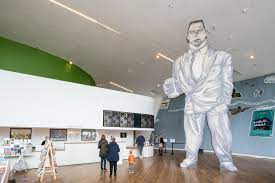
'The past is never dead. It's not even past'. In a world of conspiracy theories, toppling statues, and 'culture wars', the novelist William Faulkner's most famous line resonates more than ever.
Across the globe, History is co-opted to multiple causes and used to justify contradictory positions. Such uses of History often rely on myths, stereotypes, and misunderstandings. How can we separate political belief, personal opinion, and false information about the past from historical knowledge and understanding?
Rebellious Pasts looks at the creation, consolidation, and operation of historical myths and stereotypes – and at how we, as historians, can use the tools of our trade to identify and challenge misleading representations of the past, replacing them with richer forms of understanding. The module helps you to develop the critical mindset needed to analyse historical arguments wherever you find them, but also the constructive skills essential to researching and writing your own histories. It combines lectures and seminars exploring how history "works" in different contexts with archive visits and library workshops that expose you to the raw materials of History.
On Rebellious Pasts, you will undertake self-directed research drawing upon digitized collections, archives, and heritage sector institutions, and translate your findings into accessible public history artefacts. At its heart, History is the refusal to accept easy assumptions and the insistence on negotiating with evidence, no matter how tricky that is. By the end of the module, you will understand why History is a rebellious discipline – and how to harness its unruly powers.
- Module Supervisor: Andrew Priest